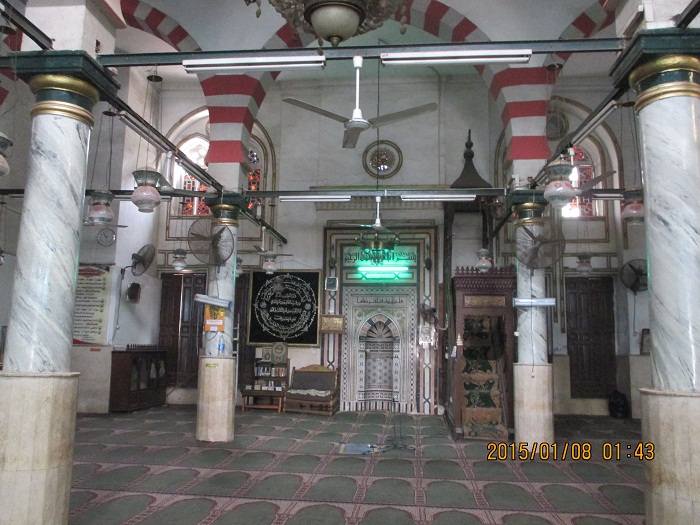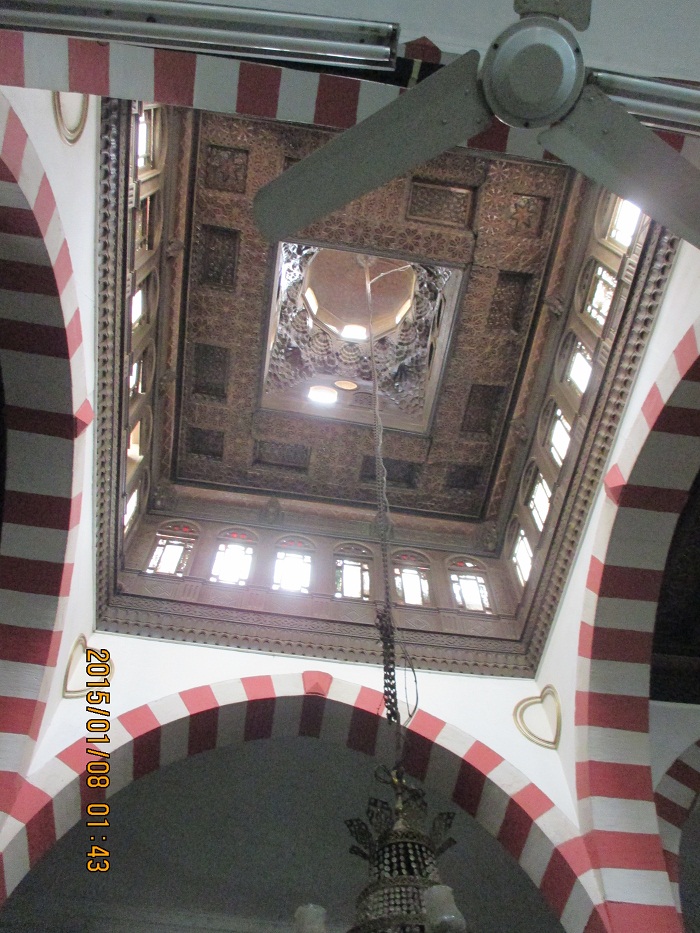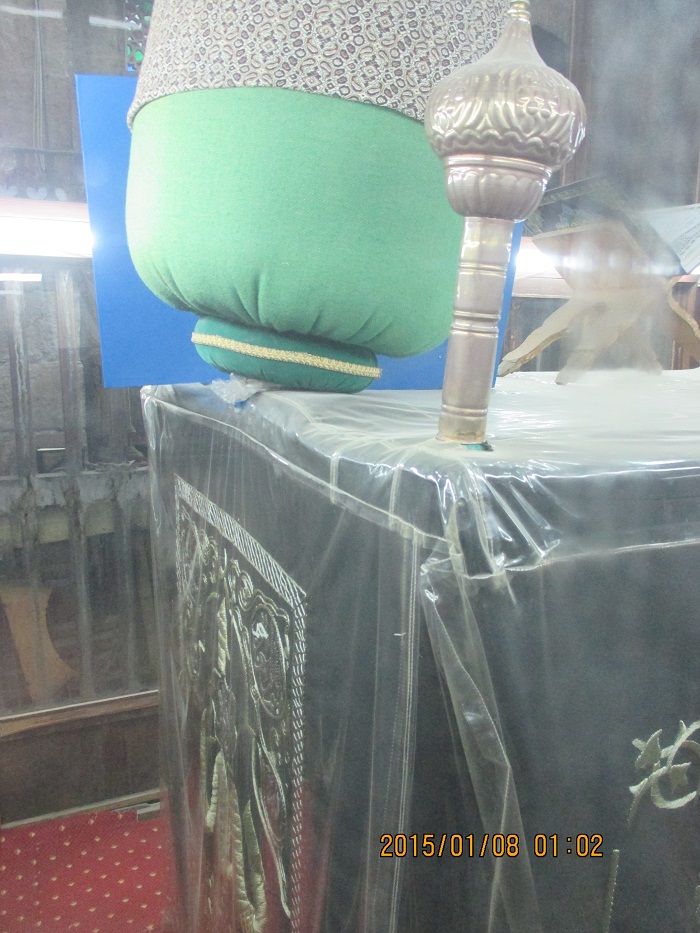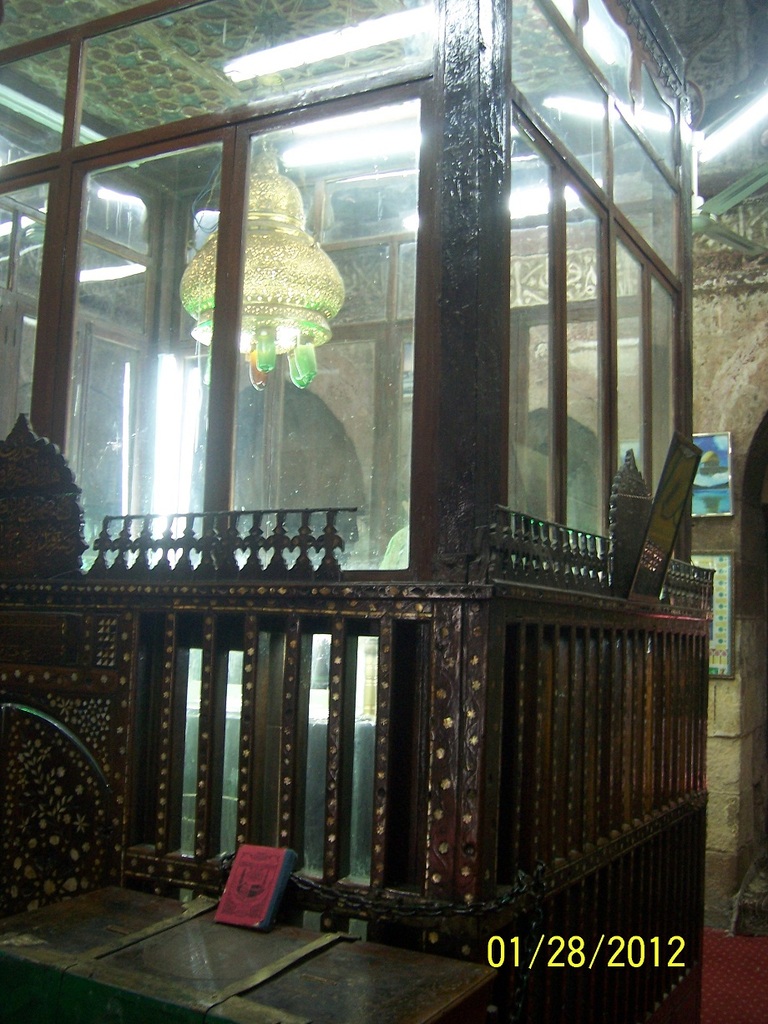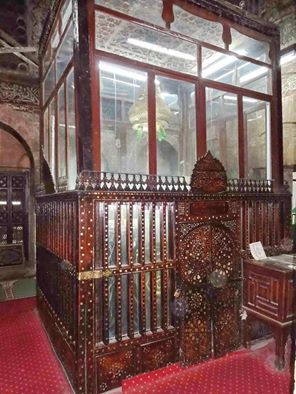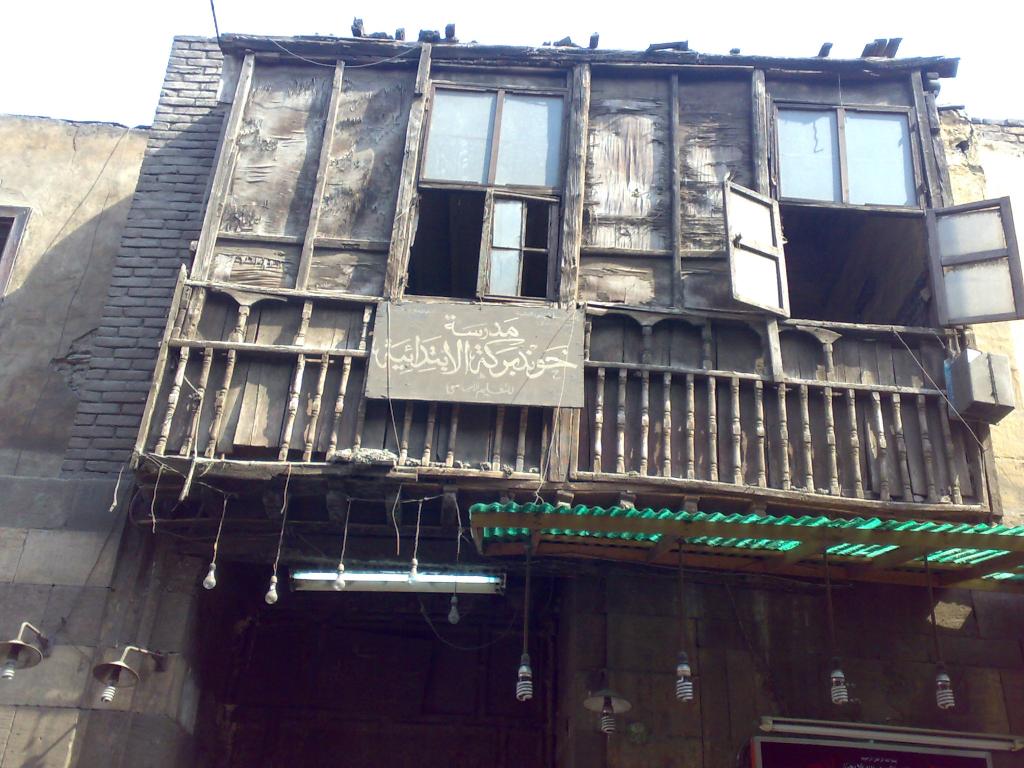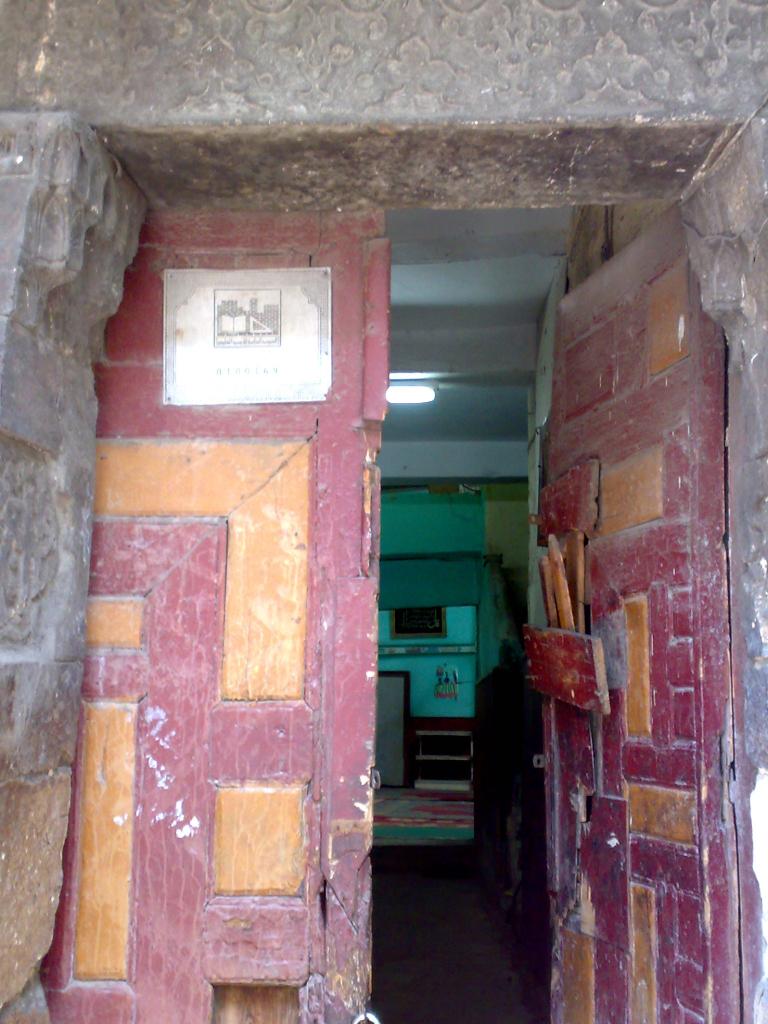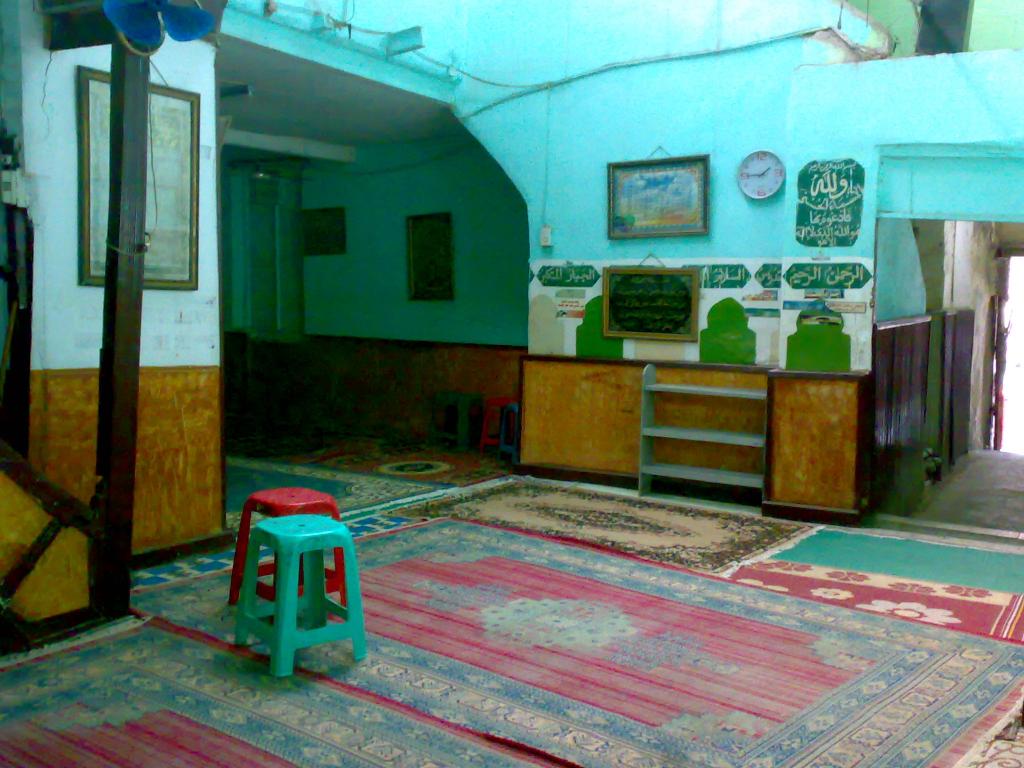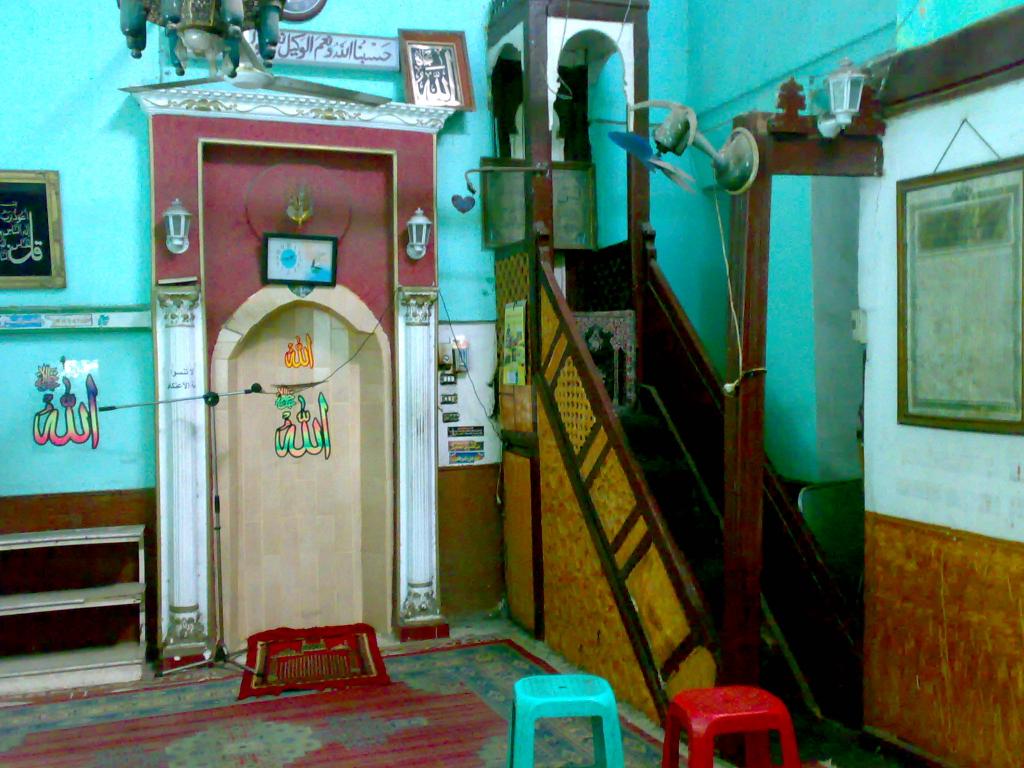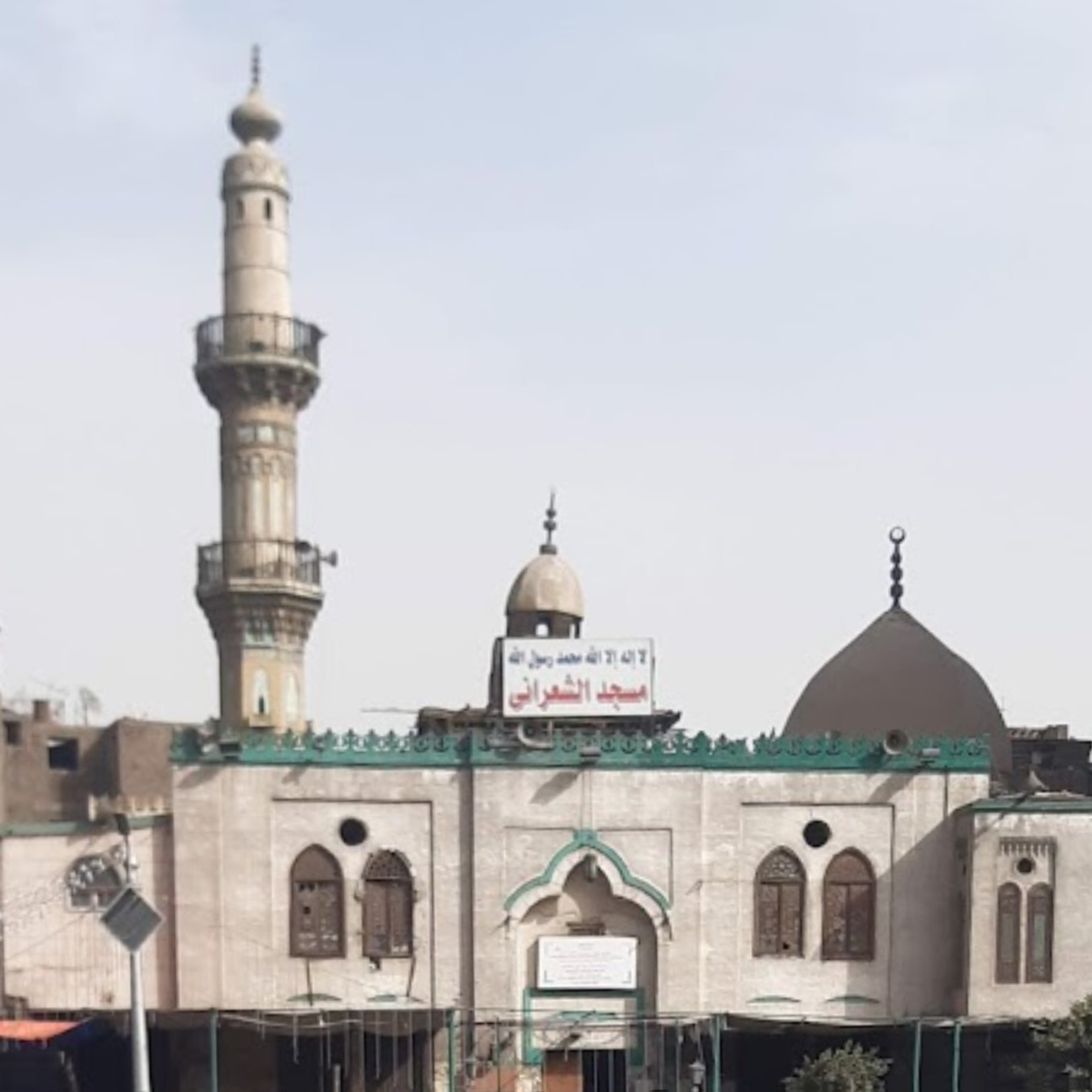Bio: Imam al-Sha’rani | الإمام الشعراني
Sh. 'Abd al-Wahhab al-Sha'rani al-Shadhili
القطب الإمام أبو المواهب شرف الدين عبد الوهاب بن أحمد بن علي الشعراني الأنصاري الشافعيd.973 H. (1565 CE) in Cairo
radiya Allah ‘anhu
﷽
He was a student of Imam Zakariyya al-Ansari.
He took the Shadhili path from Sh. ‘Ali al-Khawas
English
(d. 973/1565)
From Kuhin: Tabaqat al-Shadhiliyya Al-Kubra
He is the imam who applied his knowledge, the perfect liege of exalted ambition, the pupil of the eye [insan ‘ayn] of the pious, and the source of men [ `ayn insan] who arrive at their spiritual destination. He is the devout worshipper, the ascetic, the jurist, the muhaddith, the mystic, and the educator steering travellers along the spiritual path. He is the axis of the circle of the firmament peopled by the god-fearing, and the exemplar of saints and gnostics. He is the matchless pearl of the religiously conscientious and from those who reached the Divine. He is the heir of the sciences of the Prophets and Messengers, the one arranged in the chain of the ‘scholars of my Umma are like the Prophets of the Children of Israel’. 198 He is the guide for mankind upon the straight path, and the one singled out for noble affections from the Ever-Relenting King. It is upon him that perfect mysteries and gnoses have been poured into directly from the All-Knowing and Ever-Giving. He is the pivot of the nobles, substitutes and axial mystics. He is the teacher of the folk of guidance and noble orientation along the path, in sense and meaning, and in virtue and lineage — without need of verification. He is the one endowed with two pure lineages, and gratified by direct witnessing of the Beauty of the two Presences. He is the crown of the din, the succour of Muslims, the teacher of those who dispose of matters in creation, and the shelter of the folk of stability. He is the one regaled with supreme sustentation and divine favour which cannot be encompassed. He is Abu’l-Mawahib199 Sharaf al-Din, our liege and master ‘Abd al-Wahhab, son of our master Ahmad, son of our master Shihab al-Din ‘Ali al-Sha’rani al-Ansari al-Shafi’i, al-Muhammadi (in essence and meaning), al-Shadhili (in terms of spiritual path and ultimate reality).200 He is the raiding warrior, the qutb of the Sha’rani [branch] of the Shadhili Order, and the springhead of the notables of exalted circles.
He was from the people of the supreme circles firmly realized in sanctity since the day of {Am I not your Lord?} [Sara al-A`raf: 172]. His inward and outward was Muhammadi; or you could say that he was Khidri and Nurani.
He grew up as an orphan under the care of Allah’s Prophet, our master al-Khidr and under the watchful eye of his grandfather, Sayyidi Shihab al-Din. He was thus born and grew up as a Friend of Allah Most High. When he reached the full bloom of his youth, the signs of surpassing noble-mindedness and sanctity manifested in him. He accordingly pursued knowledge, memorizing the Qur’an and some scholarly texts, and mastering sciences and branches of knowledge. He was veiled by jurisprudence until, when his mature guidance was completed and his fame spread widely, he busied himself with the spiritual path, whereupon the glad tidings of the accurate actualizers of truth shone upon him, and he turned into one of the relied upon pillars of the path. Allah established him as a mercy unto the world when he gathered with the master of Allah’s slaves [ﷺ]. He strove the way distinguished ones do until he became counted among the paragons of manly virtue.
He spent many years without ever lying down on the earth, whether in the daytime or at night. Nay, he would tie a rope from the ceiling of his solitary retreat to his neck at night so that he would not fall. He would go hungry for days, fast incessantly, and break the fast on a tiny piece of bread. He would gather tatters from garbage piles, and take them as threadbare clothes to cover himself. His turban was made with shreds taken from garbage piles and from torn strips.
This remained his habit until his spirituality was heightened, whereupon he could fly from the courtyard of the Ghamri Mosque to its roof. During his gathering, he would behold the Garden and the Fire, the Bridge [al-Sirat] , the Gathering [al-Hashr] and the Pool [al-Hawd]. As the veil was lifted from him, he witnessed astonishing matters, seeing what lay beyond Mount Oaf. He spoke in all the other languages. Wild beasts befriended him and he would utter words that dazzled intellects. Prominent imams attested to his surpassing virtue, while the necks of mankind lowered themselves to him and he was served by humans, jinn and wild animals from every hill. He became acquainted with the wonders of Allah’s creatures, and scrupulousness in the din and doing without superfluities reached their pinnacle in him. As a result, if he — may Allah have mercy on him — walked through the marketplaces, people enthusiastically darted forth in his direction, and all creatures had firm confidence in him, including Jews and Christians. Many of them, indeed, embraced Islam at his hand, while countless sinners turned back to Allah through him, and became part of his circle of dervishes, once he had nourished them through his spiritual aid. In his zawiya, one could hear, whether at night or during the day, a buzz like the buzz of bees from beyond the gates of Cairo.
He served shaykhs and saints, and in turn the inhabitants of both the earth and heaven served him, crawling towards him. Leaders yielded to him in spite of their pride. Requests for intercession would be directed by him to them, and they would accept them in self-abasement, putting right the affairs of such intercessors and granting them safety. He was granted acceptance of his supplications, and enjoyed vast renown. He was soft-mannered, smiled frequently, was humble and lived frugally. In his earlier days, he would wear expensive clothes, and sit with scholars whom he would treat kindly. He persistently adhered to the Muhammadan sunna, paying heed to the four schools of jurisprudence without discriminating between them. Allah, Glorified and Exalted is He, acquainted him with their stations, so he would say: ‘May Allah reward them on our behalf.’
He would divide his time between the different efforts of worship: writing and compiling, remembering Allah and reminding others of Him, sending prayers on the Bringer of glad tidings and the Warner [ﷺ], and educating people through precept and the inculcation of perfection.
He was made the spokeperson of the saints. Mystics sprouted forth from his courtyard as naturally and copiously as the earth brought out produce through rain from the sky.
He, was imbued with the character of Allah’s folk: preferring others to himself, being generous, lavishly gifts like kings, and spending on the poor and needy. Around one hundred paupers would gather with him in his zawiya, and he would see to their basic maintenance and clothing.
He was extremely awe-inspiring and highly venerable. Eminent leaders would come to his door, sometimes able to meet him and sometimes unable to do so.
He posssessed lofty spiritual ambition. A large book would reach him, and he would read it and then write annotating glosses on it, all in a single night. Nasir al-Din al-Laqqani201 once sent him the Mudawwana [on the legal school of] Imam Malik, through his representative [naqib], in order to ponder therein a single juristic issue [mas ‘ala] which had outwardly proved difficult for him. When the naqib brought him it, he handed it to him in the evening at his zawiya. As he was about to depart, Imam al-Sha’rani said to him, ‘You can stay the night with us, and take it back in the morning.’ The naqib thus slept over at his house, while Sayyidi ‘Abd al-Wahhab [al-Sha’rani] took the Mudawwana into his place of retreat. After a short while, he came out of his retreat and handed it back to the naqib. In the morning, [the latter] rose and headed for Sayyidi Nasir al-Din [al-Laqqani] with the copy of the Mudawwana he had come with. Sayyidi Nasir al-Din al-Laqqani opened it and found annotations and corrections penned it. He was astonished. He asked the naqib about this, and the latter replied, ‘All I know is that, when Sayyidi `Abd al-Wahhab took the book from me, he entered his place of retreat and then returned it to me after about twenty minutes. I did not open it myself, and brought it to you in the same state as he had handed it to me. I noticed, my master, that he neglected none of his regular litanies or optional night prayers.’
Rulers and the influential people would love him intensely and have deep trust in him on account of his excellence and scrupulousness in the din. Sultan al-Ghawri —may Allah have mercy on him — was deeply fond of him, and had resolute belief in him. Once he gifted him a prayer mat and a muslin, which was seven cubits wide and thirty cubits long. It had been a present for him from the Sultan of India who had given it to him inside the shell of a nut. Sayyidi ‘Abd al-Wahhab al-Sha’rani gifted the muslin to his own brother, our master Sayyidi `Abd al-Qadir, and kept the prayer mat, though he never used it in his lifetime, without however returning it to the Sultan out of courtesy. This was his inveterate practice, and the wellspring of propriety from which he engaged with leaders and those under them. He paid heed to the sacrosanct honour of the rich and the poor, and the elders and the young. This is but a drop in the ocean of his virtues.
How can we possibly list all of his virtues? He is in fact the imam of all actualizers of the ultimate reality, the educator of committed disciples who brought them up through principles of stability. He is the unlocker of recondite meanings in the spiritual allusions of those truly realized, and the interpreter of symbols found in the ambiguous expressions of the gnostics. He is the intermediary of the spiritual wayfarers’ necklace, and the sweet basil of spiritual accomplishers’ existence: established by Divine Power, arrayed by Godly Solicitude and the breezes of the Most Merciful. He accordingly treaded the path of the Divine, following the Majestic Book and Muhammadan Sunna, and learning jurisprudence until he reached the ultimate goal in the school of Shafi’i masters — after this, Allah granted him lorldly and mystical openings.
He enjoyed veneration in the hearts of leaders [sudur al-sudur] and reverence in the eyes of notables [ ‘uyun al-a’yan], until Allah Most High moved him unto the abode of His Noble Generosity in the year AH 973. He was buried in his zawiya between the two banks (of the Nile ). A huge number of scholars, jurists, leaders and dervishes attended his funeral. It was a well-attended day in Cairo. The funeral prayer for him was performed in the Noble Azhar Mosque, and his whole lineage was read out on the terraced bench. He was carried on shoulders to his burial place. The Friends of Allah, both living and dead, attended his funeral, together with members of the circles from both mankind and jinn, who inhabited the deserts, valleys and lands beyond the seas. Ultimately, no funeral like his was ever witnessed in Cairo. Birds uninterruptedly hovered above his bier, while inanimate objects wept over his departure and hearts were torn out of grief for him.
He — may Allah have mercy on him — left behind an enduring renown, and a pure and perfumed acclaim. After his death, beneficence cascaded onto his zawiya from everywhere. People established real estates and foundations as trusts, and built for him a mosque befitting his shrine, together with a mausoleum exclusively for him, surmounted by an arched dome and a closet, and arranged salaries for those looking after it. His mosque is regarded as one of Cairo’s most tremendous mosques, and his mausoleum as one of the most majestic mausoleums wherein supplications are answered. His spiritual succour flows upon Allah’s slaves there. It is a destination sought after by those in need or afflicted by hardships, who then stand before him and turn to Allah through his intercession so that their worries might be dispelled. No one has visited him save that he went back with his brooding mind set at ease.
He is the supporter of the weak in life and after death. People crowd around him, and make vows in his presence, carrying candles. No one has alighted at his courtyard except that an abundance of his spiritual succour is poured upon him, may Allah show mercy to him. Cairo’s inhabitants, of every religious orientation, set out for him, hoping to find abundant good therein. O Allah, nourish us through his overflowing aid, gather us in the Hereafter under his banner, and perpetuate his blessings for us, amin.
__________
Footnotes:
198 It has been reported by al-Fattani in Tadhkirat al-Mawdu’at (20), ‘Ali al-Qari in al-Asrar al-Marra fi al-Akhbar al-Mawdu’a (247), al-‘Ajluni in Kashf al-Khafa-(2/83), al-Sakhawi in al-Fawaid al-Majmu’a Li al-Ahadith al-Mawdu’a (786) and al-Suyuti in al-Durar al-Muntahira fi al-Ahaditbal-Mushtahira (113).
199 In al-A’lam (4/180), his patronymic (kunya) is said to be Abu Muhammad.
200 For his biography, see al-A’lam (4/180-1), Kutat Mubarak (14/109), Jurji Zaydan’s Adab al-Lughat al-Arabiyya (3/335), al-Fihris al-Tamhidi (393, 421), Majallat al-Kitab (2/344), al-Khazanat al-Taymuriyya (3/164), al-Kutubkhana (2/61, 65, 88, 103 and 104) and Tabaqat al-Shadhillyyat al-Kubra by Muhyi al-Din al-Tu`mi (p. 166).
201 Al-Nasir al-Laqqani is the polymath Abu ‘Abdullah Muhammad b. al-Hasan. He died on Wednesday, 14 Sha`ban AH 958, at the age of 84. His biography can be found in Ahmad Baba al-Tinbukti’s Kifayat al-Muhtaj and in Badr al-Din al-Qarafi’s Tawshib al-Dibaj wa Hilyat al-Ibtihaj.
The Path of the Sufis
The path of the Sufis is built on the Koran and sunna
The path of the Sufis is built on the Koran and sunna, and is based upon living according to the morals of the prophets and purified ones. It may not be blamed unless it violates an explicit statement from the Koran, sunna, or scholarly consensus, exclusively. If it does not contravene one of these, the very most that one may say of it is that it is an understanding a Muslim man has been given, so let whoever wishes act upon it, and whoever does not refrain, this being as true of works as of understanding. So no pretext remains for condemning it except one’s own low opinion of others, or interpreting what they do as ostentation, which is unlawful.
Whoever carefully examines the branches of knowledge of the Folk of Allah Most High will find that none of them are beyond the pale of the Sacred Law. How should they lie beyond the pale of the Sacred Law when it is the law that connects the Sufis to Allah at every moment? Rather, the reason for the doubts of someone unfamiliar with the way of the Sufis that it is of the very essence of theSacred Law is the fact that such a person has not thoroughly mastered the knowledge of the law. This is why Junayd (Allah Most High have mercy on him) said, ‘This knowledge of ours is built of the Koran and sunna,’ in reply to those of his time or any other who imagine that it is beyond the pale of the Koran and sunna.
The Folk unanimously concur that none is fit to teach in the path of Allah Mighty and Majestic save someone with comprehensive mastery of the Sacred Law, who knows its explicit and implicit rulings, which of them are of general applicability and which are particular, which supersede others and which are superseded. He must also have a thorough grounding in Arabic, be familiar with its figurative modes and similes, and so forth. So every true Sufi is a scholar is Sacred Law, though the reverse is not necessarily true.
To summarize, no one denies the states of the Sufis except someone ignorant of the way they are. Qushayri says, ‘No era of the Islamic period has had a true sheikh of this group, save that the Imams of the scholars of that time deferred to him, showed humility towards him, and visited him for the benefit of his spiritual grace (baraka). If the Folk had no superiority or election, the matter would have been the other way around.
_______________________________
From al-Tabaqat al-kubra al-musamma bi Lawaqih al-anwar fi tabaqat al-akhyar (1374/1954) (Reprint, Beirut: dar al-fikr, n.d.) 1:4. In Reliance of the Traveller p. 863-864.
With his teacher ´Ali al-Khawas
Al-Anwar al-Qudusiyya fi Ma’rifa al-Qawa’id al-Sufiyya Transl. by thehiddentreasure
After that Allah proclaimed for him the spiritual opening and united him (Ash-Sha’rani) with al-Khawwas. Al-Khawwas was his mi’raj and his ladder by which he ascend to the doors of spiritual openings and heavens of bestowals and realms of light and inspirations. Their relationship is the manifest sign of the status of the Shaykh in the Path. It is the greatest sign of the status of divinely bestowed knowledge (العِلْم اللَّدنِّي) for al-Khawwas was unlettered while ash-Sha’rani was a scholar. But that was the external judgement, while the internal judgment says that al-Khawwas was the scholar while ash-Sha’rani was the unlettered one.
Ash-Sha’rani said: From the favours of Allah upon himself (ash-Sha’rani) was that his arrival and opening (in gnosis) was at the hands of an unlettered man who neither knew writing nor reading. He added in describing this unlettered man:
“A man who is totally hidden such that almost no one knew of his sainthood and knowledge except for the practicing scholars, for he is indeed a perfect man to us without any doubt! The perfect one is he whom when he reaches the station of the perfect men in knowledge of Allah (العرفان), he becomes a stranger in all the worlds.”
Ash-Sha’rani narrates to us his delightful spiritual experience of his arrival unto the ascending paths of divine illuminations at the hands of his Shaykh and the oceans of knowledge of his master :
My spiritual struggles at the hands of my master ‘Ali al-Khawwas were many and of various types. Amongst them, he would order me in the beginning to sell away all my books and to give away the money in charity, which I did. Those were precious books which could be sold for a high price. So I sold them and gave away the sales in charity but I became anguished at having to part with them as I had put much effort and had added notes and comments in them. It reached a point as if I was completely robbed of my knowledge. (At that time) he (al-Khawwas) said to me, “Strive to cut off your (heart’s) turning back (out of attachment) to them (the books) by much remembrance of Allah Exalted is He. Indeed they say, “One who turns back, does not arrive”. Thus, I strove in cutting off my attachment to them till I managed to free myself and praise be to Allah for that.
عربي
(… – 973)
الإمام العامل، والهمام الكامل، إنسان عين ذوي الفضائل، وعين إنسان الواصلين، من ذوي الفضائل، العابد، الزاهد، الفقيه، المحدث، الصوفي، المربي المسلك، قطب دائرة فلك المتقين، قدوة الأولياء والعارفين، فريدةُ الأتقياء والواصلين، ووارث علوم الأنبياء والمرسلين، المنتظم بسلسلة «علماء أُمَّتي كأنبياء بني إسرائيل»([2])، مرشدُ الخلائق إلى سواء السبيل، المختصُّ بشرائف عواطف الملك التواب، المفيض عليه من كمال الأسرار والمعارف من لدن العليم الوهاب، قطب الأنجاب والأبدال والأقطاب، أستاذ أهل الإرشاد والتسليك الشريف حسًّا ومعنى، حسبًا ونسبًا، بلا تحقيق، طاهر النسبتين، المتمتع بمشاهدة جمال الحضرتين، تاج الدين، وغوث المسلمين، وأستاذ المتصرفين، وملاذ أهل التمكين، صاحب المدد الأكبر، والفضل الذي لا يحصر، أبو المواهب شرف الدين سيدنا ومولانا عبد الوهاب ابن سيدنا أحمد ابن سيدنا شهاب الدين علي الشعراني الأنصاري الشافعي، المحمدي ذاتًا وصفاتًا، الشاذلي طريقة وحقيقة، المجاهد الغازي، قطب الطريقة الشعرانية الشاذلية، وعين أعيان أهل الدوائر العلية.
كان رضى الله عنه من أصحاب الدوائر الكبرى المتمكنين في الولاية من يوم ﴿أَلَسْتُ بِرَبِّكُمْ﴾ [الأعراف: 172]، وكان باطنه وظاهره محمديًّا، وإن شئت قلت خضريًّا نورانيًّا.
تربى رضى الله عنه يتيمًا بكفالة نبي الله سيدنا الخضر عليه السلام، وبنظرات جده سيدي شهاب الدين رضى الله عنه، فولد ونشأ رضى الله عنه وليًّا من أولياء الله تعالى، ولما ترعرع، وصار في ريعان شبابه، ظهرت فيه علامات النجابة([3])، ومخايل الولاية، فاجتهد في طلب العلوم، وحفظ القرآن، وبعض المتون، وحاز العلوم والفنون، وتستر بالفقه حتى كمل رشده، وطار ذكره، اشتغل بالطريق فلاحت عليه بشارات أهل التحقيق، وصار ركنًا من أركان الطريق يعتمد عليه، وقد أقامه الله رحمة للعباد، لما اجتمع بسيد العباد، وجاهد جهاد الأبطال حتى عد من فحول الرجال.
ومكث سنين طوالًا لا يتضجع على الأرض ليلًا ولا نهارًا، بل اتخذ له حبلًا في سقف خلوته، فجعله في عنقه ليلًا حتى لا يسقط، وكان يطوي الأيام المتوالية، ويديم الصوم، ويفطر على أوقية([4]) من الخبز، ويجمع الخرق من الكيمان، فيتخذها مرقعة فيستتر بها، وكانت عمامته من شراميط الكيمان، وقصاصة الجلود.
واستمر على ذلك حتى قويت روحانيتُهُ، فصار يطير من صحن جامع الغمري إلى سطوحه، ورأى في مجلسه الجنة والنار، والصراط والحشر، والحوض، وكشف عنه الحجاب، فشاهد الأمور العجاب، ورأى ما خلف جبل قاف، وتكلم بسائر اللغات، واستأنست به الوحوش، وتكلم بما يُبهر العقول، وشهدت بفضله الأئمة الأعلام، ودانت له رقاب الأنام، وخدمته الإنس والجان، والوحوش من جميع الآكام([5])، واطلع على عجائب مخلوقات الله، وبلغ به الورع والزهد منتهاه، حتى إذا مشى رحمه الله في الأسواق، تندلق([6]) عليه الناس أيَّ اندلاق، واعتقدته جميع الخلائق، حتى اليهود والنصارى، وأسلم على يديه الكثير منهم، وتاب على يديه من العصاة ما لا يُحصر عدده، وصاروا من فقرائه، لما أمدَّهم بمدده، وكان يُسمعُ لزاويته دويٌّ كدوي النحل ليلًا ونهارًا من خارج أبواب مصر.
خدم المشايخ والأولياء، فخدمته أهل الأرض والسماء، وسعوا له حبوًا على وجوههم، وأذعنت له الأمراء رغم أنوفهم، كانت تأتي إليهم الشفاعات، فيقبلونها صاغرين، ويجبرون أصحابها ويردُّونهم سالمين.
وكان رضى الله عنه مُجاب الدعوة، عظيم السمعة، لين الجانب، بسامًا متواضعًا متقشفًا([7]).
وكان يلبس في بدايته الملابس الغالية، ويجالس العلماء ويلاطفهم، وكان مُواظبًا على السنة المحمدية، مراعيًا للمذاهب الأربعة لا يفرق بينهم وقد أطلعه الله سبحانه وتعالى على مقاماتهم، وكان يقول: جزاهم الله عنا خيرًا.
وكان رضى الله عنه موزِّعًا أوقاته على العبادة؛ ما بين تأليف وتصنيف، وذكرٍ وتذكير، وصلاة على البشير النذير، وتربية بالدلال والكمال.
أُعطي رضى الله عنه ناطقةَ جميع الأولياء، وكانت تنبت الأولياء بساحه، كما تنبت الأرض بماء السماء.
وكان رضى الله عنه متخلقًا بأخلاق أهل الله، مؤثرًا على نفسه، كريمًا، يُعطي عطايا الملوك، ويُنفق على الفقراء وذوي الحاجات، وكان يجتمع عنده بالزاوية نحو مئة من الفقراء، فكان يقوم بهم نفقةً وكسوة.
وكان عظيم الهيبة، وافر الحرمة، يأتي إلى بابه أكابر الأمراء، فتارة يجتمعون به، وتارة لا يجتمعون.
وكان رضى الله عنه ذا همةٍ عالية، فكان يأتيه الكتابُ الكبير الحجم، فيطالعه ويراجعه، ويضع عليه تقريراته في ليلة واحدة، وأرسل له ناصر الدين اللقاني «مدونة الإمام مالك» رضى الله عنه مع النقيب، ليراجع فيها مسألة أشكلت عليه في الظاهر، فلما أتى بها النقيب، وصل إليه في الزاوية مساءً، فأعطاها له، وأراد الانصراف، فقال له: حتى تأخذها في الصباح، وبات عندنا هذه الليلة، فبات النقيب، وأخذ «المدونة» سيدي عبد الوهاب، ودخل خلوته، وبعد مضي زمن يسير، خرج من الخلوة، وردَّها إليه، فأصبح الرجل، ومضى إلى سيدي ناصر الدين، و «المدونة» معه، ففتحها سيدي ناصر الدين اللقاني، فوجد عليها تقريرات وتصليحات، فتعجب غاية العجب، فسأل نقيبه عن ذلك، فقال: لا أعلم غير أن سيدي عبد الوهاب لمَّا أخذها منّي، ودخل خلوته، ردَّها إليَّ بعد عشرين درجة، فلم أفتحها، وأحضرتها إليك كما هي، ولقد رأيته يا سيدي والله ما ترك وردًا من أوراده، ولا تهجُّداته.
وكانت الأمراء، وأرباب الجاه يحبونه محبة شديدة، ويعتقدونه لصلاحه وورعه، وكان السلطان الغوري رحمه الله يحبه محبَّةً شديدة، ويعتقده اعتقادًا جازمًا، وأهدى له مرة سجادة وشاشًا عرضُه سبعة أذرع، وطوله ثلاثون ذراعًا، أهداه له سلطان الهند في قشرة الجوزة، فأعطى رضى الله عنه الشاش لأخيه سيدي مولانا عبد القادر وأبقى السجادة ولم يستعملها مدة حياته، ولم يردها على السلطان أدبًا منه، وكان هذا ديدنه([8])، ومشربه الأدب مع ولاة الأمور، ومن دونهم، يُراعي حرمة الفقير والغني، والكبير والصغير، وهذه قطرةٌ من بحر فضائله.
وكيف لنا أن نقوم بحصر مناقبه؟! فهو إمام المحققين على الإطلاق، ومربي المريدين بأقوى قواعد التمكين، وفاتح أقفال غوامض معنويات إشارات المحققين، ومُعّبرُ رموز محلات مشكلات العارفين، واسطة عقد السالكين، وريحانة وجود الواصلين، الذي أقامته القدرة الإلهية، ورتَبته العناية الربانية، واللطائف الرحمانية، فسلك الطريقة الإلهية، مُتَّبعًا للكتاب العزيز والسنة المحمدية، وتفقَّه حتى وصل إلى الغاية، في مذهب السادة الشافعية، وفتح الله عليه بالافتتاحات الربانية.
ولم يزل مُعظّمًا في صدور الصدور، مُبجَّلًا في عيون الأعيان، حتى نقله الله تعالى إلى دار كرامته، عام تسع مئة وثلاثة وسبعين، ودُفن بزاويته بين الصورين، وحضر جنازته جمعٌ حافل من العلماء والفقهاء والأمراء والفقراء، وكان يومًا مشهودًا في مصر، وصُلّي عليه بالأزهر الشريف، وقُرئ نسبه الشريف على الدكَّة([9])، وحملوه على الأعناق، حيث مدفنه، وحضرت جنازته الأولياء الأحياء والأموات، ورجال الدوائر من الإنس والجن من سكان البراري والوديان وما وراء البحار، حتى لم تُر قطُّ جنازةٌ بمصر مثل جنازته، وعكفت الطيورُ تحوم حول نعشه، وبكتْ عليه الجمادات، وتقطعت القلوب أسفًا عليه.
وخلَّف رحمه الله ذكرًا باقيًا، وثناءً عطرًا زاكيًا، وبعد وفاته تناثرت الخيرات على زاويته من كلِّ فج عميق، فأوقفوا العقارات والأطيان، وشيدوا له مسجدًا جامعًا يليق بمقامه، وضريحًا خاصًّا له، وبعاليه قبَّةٌ معقودةٌ ومقصورة، ورتَّبوا له المرتبات.
وصارَ مسجده يُعدُّ من أعظم مساجد مصر، وضريحه من أجلِّ الأضرحة التي يستجاب عندها الدعاء، ومدَدُه فائضٌ بين العباد، تقصدُه ذوو الحاجات والمتعسرين، فيقفون بين يديه، ويتوسَّلون إلى الله بكشف الكروب، وما زاره أحدٌ إلا ورُدَّ مجبورَ الخاطر.
وهو رضى الله عنه نصيرُ الضعفاء حيًّا وميتًا، تزدحم الناس عليه، وينذرون له النذور والشموع، وما من أحد حلَّ ساحته إلا وأفاض عليه من مدده، رحمه الله، وتقصدُه أهالي مصر قاطبةً، من كل ملة، ويؤملون عنده خيرًا كثيرًا، اللهم أمدنا بمدده الفياض، واحشرنا تحت لوائه، وأدم علينا بركاته. آمين.
([1]) عبد الوهاب بن أحمد بن علي الحنفي، نسبة إلى محمد ابن الحنيفية، الشعراني، أبو محمد: من علماء المتصوفين. ولد في قلقشندة بمصر سنة 898 هـ، ونشأ بساقية أبي شعره (من قرى المنوفية) وإليها نسبته: (الشعراني، ويقال الشعراوي) وتوفي في القاهرة سنة 973 هـ له تصانيف منها: «أدب القضاة» و «الأجوبة المرضية عن أئمة الفقهاء والصوفية» وغير ذلك. [«الأعلام» (4/180، 181)، و«شذرات الذهب» (8/3، 5)].
([2]) لا أصل له: انظر السلسلة الضعيفة للألباني حديث رقم (466).
([3]) النَّجَابَةُ: النباهة وظهور فضل الولد على أترابه.
([4]) الأُوقِيَّةُ: جزء من اثني عشر جزءًا من الرطل المصري.
([5]) الآكام: (ج) الأكمة: التل.
([6]) اندلق الشيء: اندفع من مكانه.
([7]) تقشف فلان: ترك الترفه والتنعم.
([8]) الدَّيْدَانُ: العادة والدأب. يقال: فلانٌ ديدنه أن يفعل كذا.
([9]) الدَّكَّةُ: بناء يسطع أعلاه للجلوس عليه. (ج) دِكاكٌ.
Writings
View | Visit
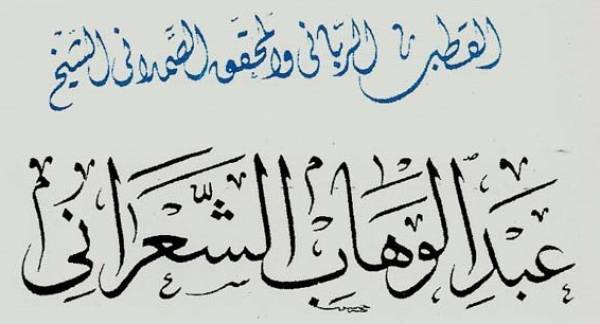
List of writings available on archive.com
مكتبة عبد الوهاب الشعراني
1- إرشاد الطالبين إلى مراتب العلماء العاملين ومعه عقيدة اكابر أهل السنة والجماعة
2- الأنوار القدسية فى معرفة قواعد الصوفية
3- الانوار القدسية في بيان آداب العبودية
4- الأنوار في آداب الصحبة عند الأخيار
5- الجوهر المصون والسر المرقوم فيما تنتجه الخلوة من الأسرار والعلوم
6- الدرر واللمع في بيان الصدق في الزهد والورع
7- القواعد الكشفية الموضحة لمعاني الصفات الإلهية
8- الكبريت الأحمر في بيان علوم الشيخ الأكبر
9- الكوكب الشاهق فى الفرق بين المريد الصادق وغير الصادق
10- اليواقيت و الجواهر في بيان عقائد الأكابر
11- تنبيه المغترين اوائل القرن العاشر علي ما خالفوا فيه سلفهم الطاهر
12- درر الغواص على فتاوى سيدي علي الخواص
13- لطائف المنن والأخلاق بوجوب التحدث بنعمة الله على الإطلاق
14- لواقح الأنوار القدسية في بيان العهود المحمدية
15- مختصر الإعتقاد للبيهقى
16- مختصر تذكرة السويدي في الطب
17- مختصر تذكرة القرطبي
18- منح المنة في التلبس بالسنة
19- الميزان الذرية المبينة لعقائد الفرق العلية
20- الطبقات الصغرى
21- موازين القاصدين من شيوخ ومريدين – المنح السنية على الوصية المتبولية
22- كشف الحجاب والران عن وجه أسئلة الجان
23- ردع الفقراء ودعوى الولاية الكبرى
24- البحر المورود في المواثیق و العهود
25- منهاج الوصول الى مقاصد علم الاصول
26- تطهير أهل الزوايا من خبائث الطوايا
27- كشف الغمة عن جميع الأمة:
http://archive.org/details/Kashfghoma
28- الطبقات الكبرى المسمى لواقح الأنوار القدسية في مناقب العلماء والصوفية :
https://archive.org/details/tabaqatekoubra
29- الميزان الكبرى:
http://archive.org/details/almizane
30- الأخلاق المتبولية المفاضة من الحضرة المحمدية:
http://archive.org/details/akhlaqmatboulia
Mosque in Cairo
@30.054278,31.2552011
Madrasa
Place of Worship of Imam al-Sha'rani
- مدرسة خوند ( مكان تعبد الإمام الشعرانى ) @30.0536572,31.2553966

